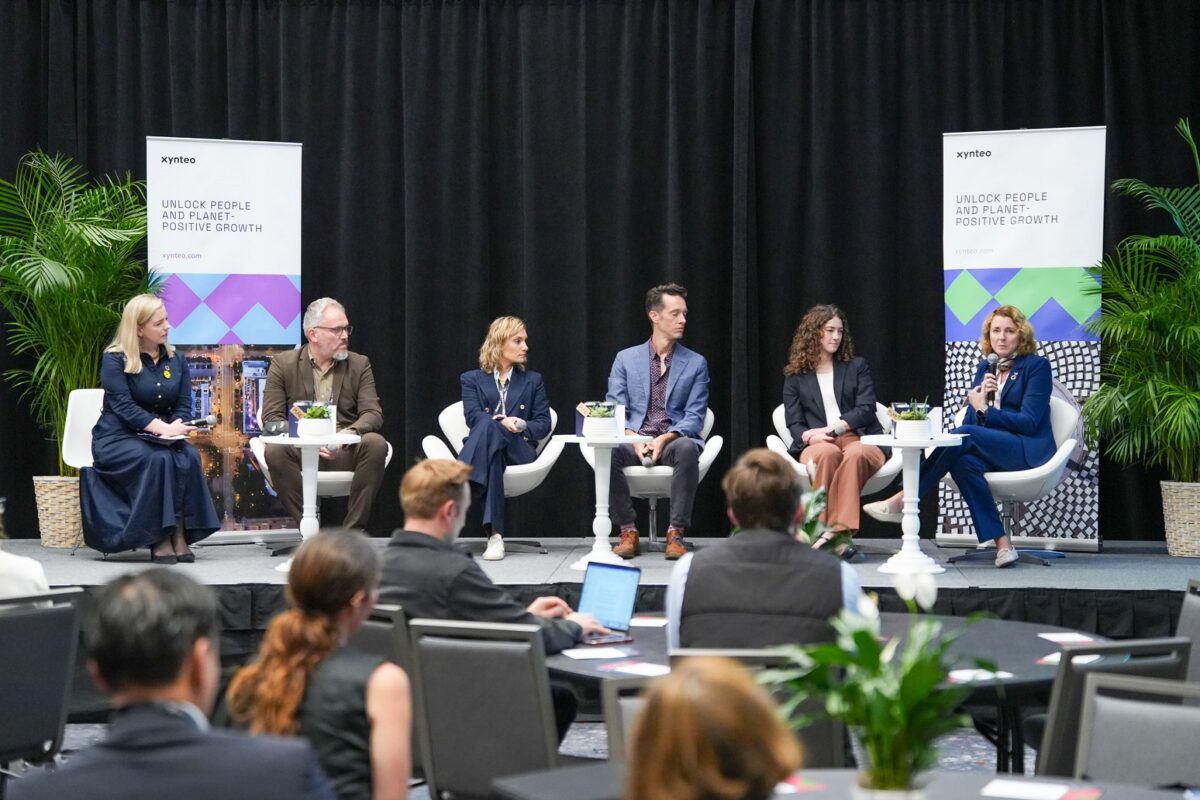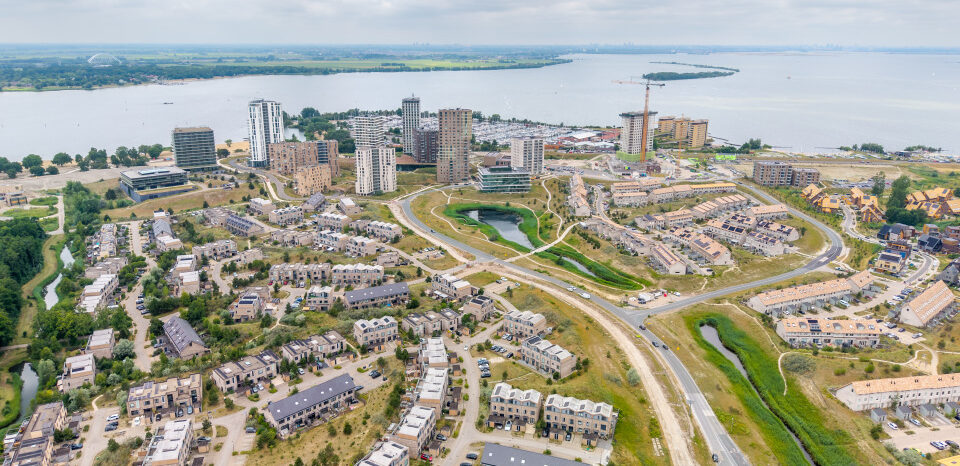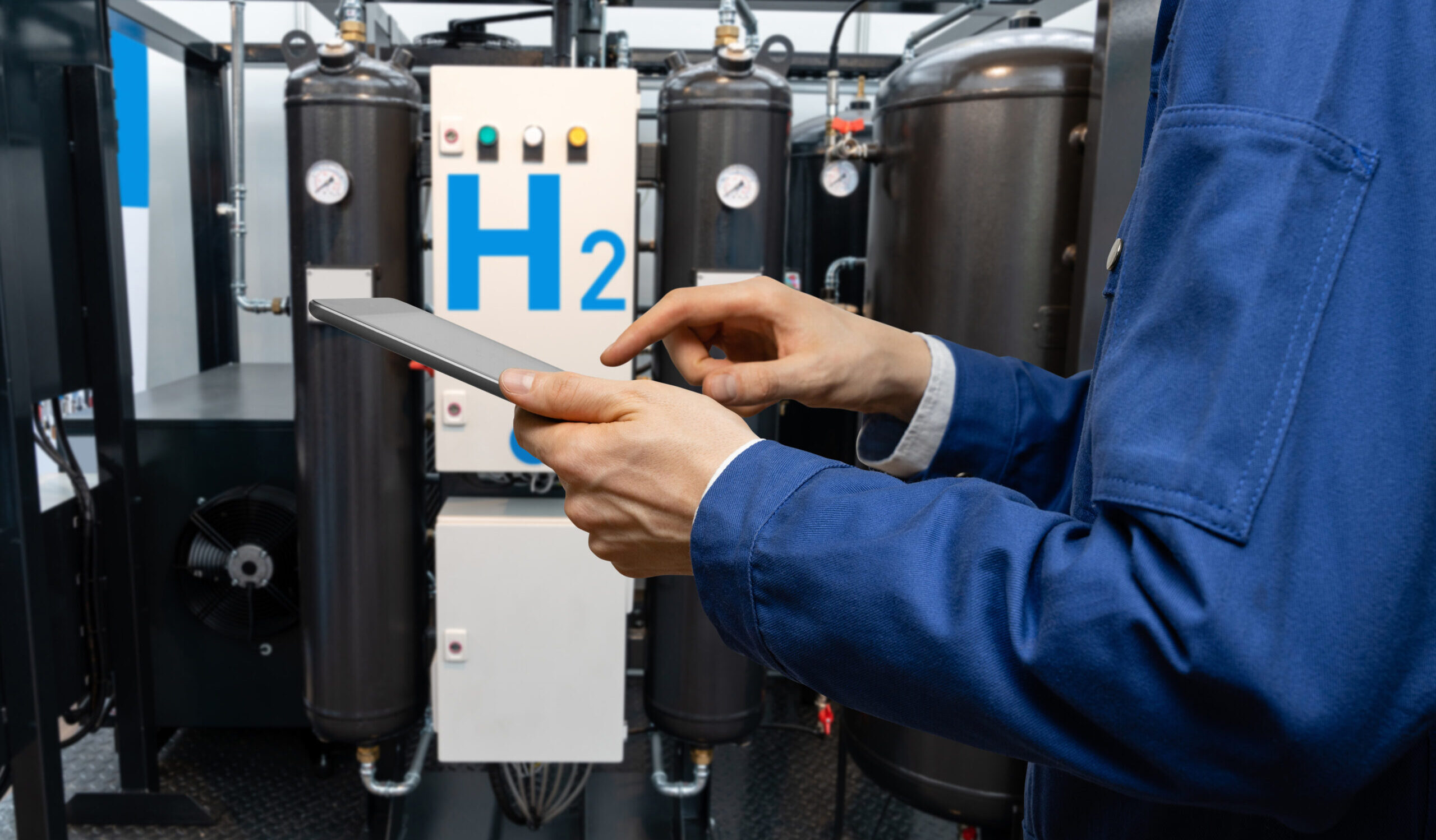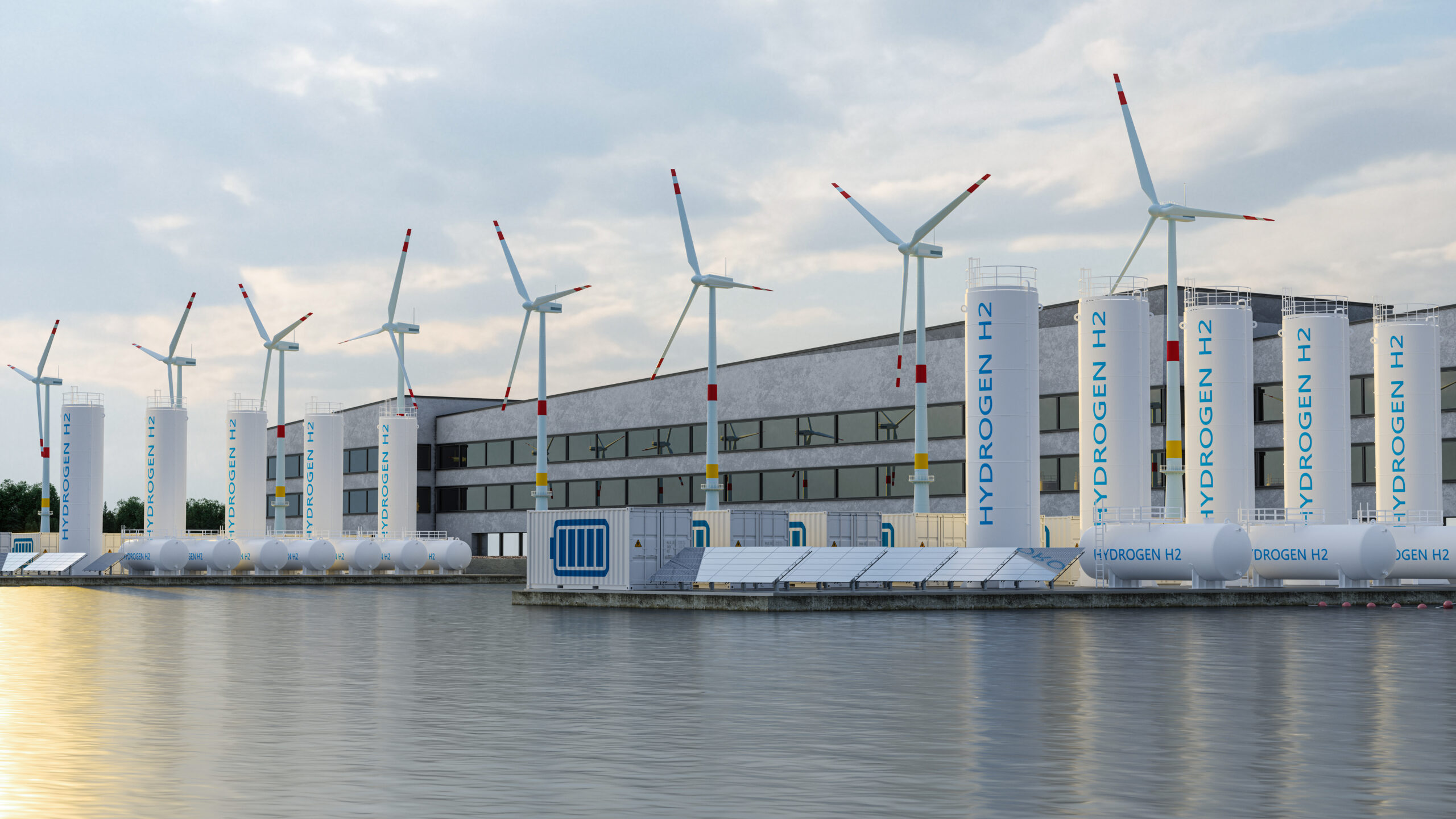In the words of every kid in every car back seat ever: “Are we there yet?” When it comes to the electric vehicle transition, the promises and ambition have been huge. But the reality is that outside a handful of places, for example in the Nordics where EVs are now ubiquitous, the answer is resoundingly “no, not yet”.
Over the last decade we’ve seen EV commitments that have been ambitious and backed by serious investment. Yet as we reach the middle of the decade, the complexity of delivering the transition is challenging business, society and government on numerous fronts. At Climate Week NYC 2024, Xynteo brought together a panel of industry leaders from across the EV value chain for “In the Driving Seat?” During the discussion the panel dove into a complex landscape of challenges, the opportunities of their often different business models present to business, and their perspectives on the critical questions we need answered to accelerate the transition.
The technology is ready
With the electric vehicle value chain continuing to evolve at speed, there is inherent uncertainty in what the marketplace will look like as we reach the end of the 2020s. While the transition away from internal combustion engines is as much a social and community change, as it is an economic one, the most important shifts that has taken place in the last handful of years – and a point on which all panellists were in strong agreement – is that technology is no longer the barrier.
Electric vehicles themselves, the subsidiary technologies such as the batteries, charge points and charging infrastructure, and a myriad of supporting software from telematics and fleet management to payment platforms and charging optimisation are all now mature. Excitingly, beyond maturity, many of these value chain components are now even driving competition, offering buyers choices in all categories. But with agreement on the technology being ready, and the transition is gathering speed overall, what’s holding up progress?

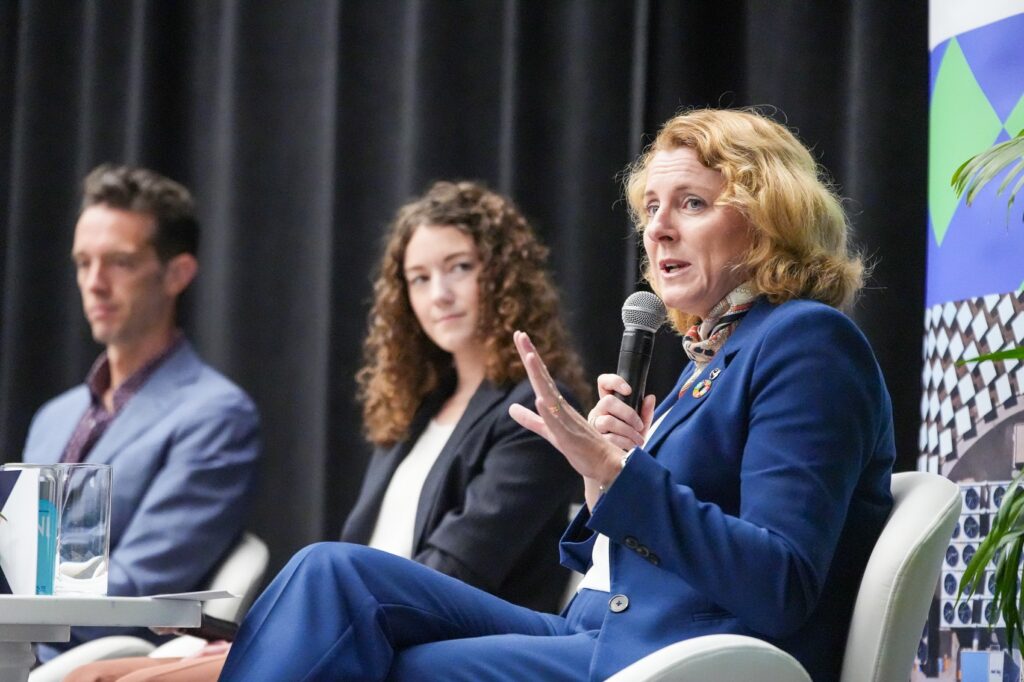
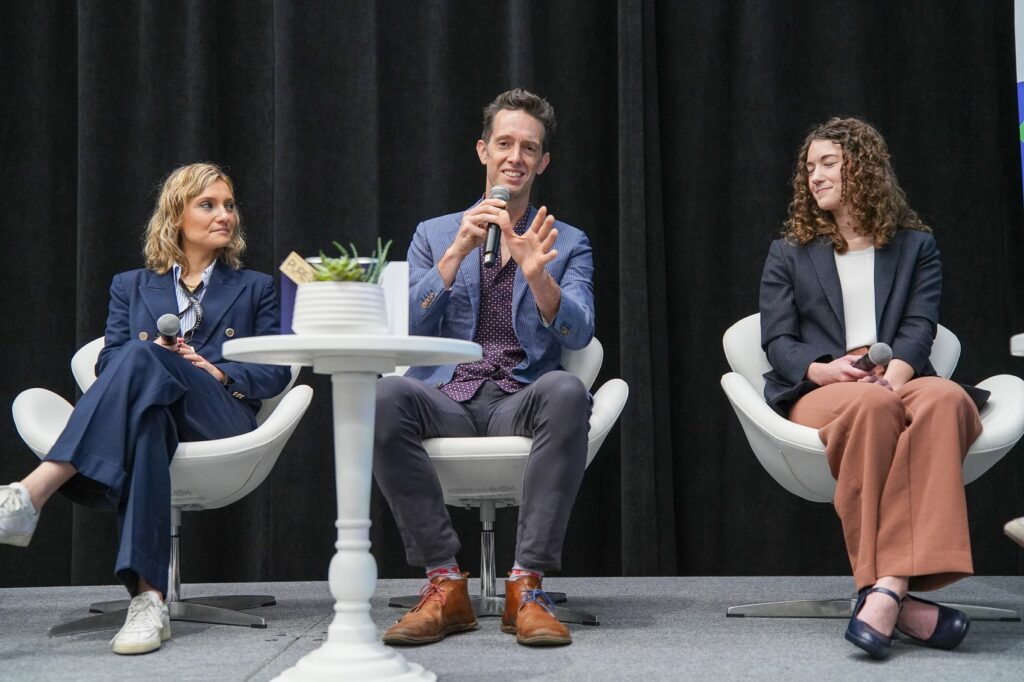
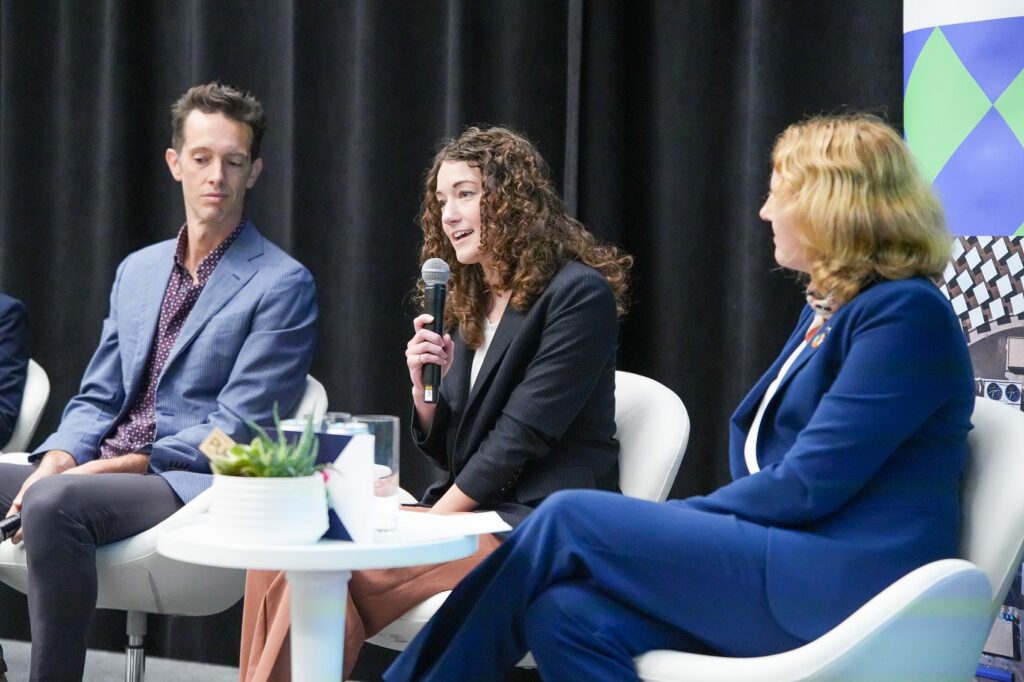
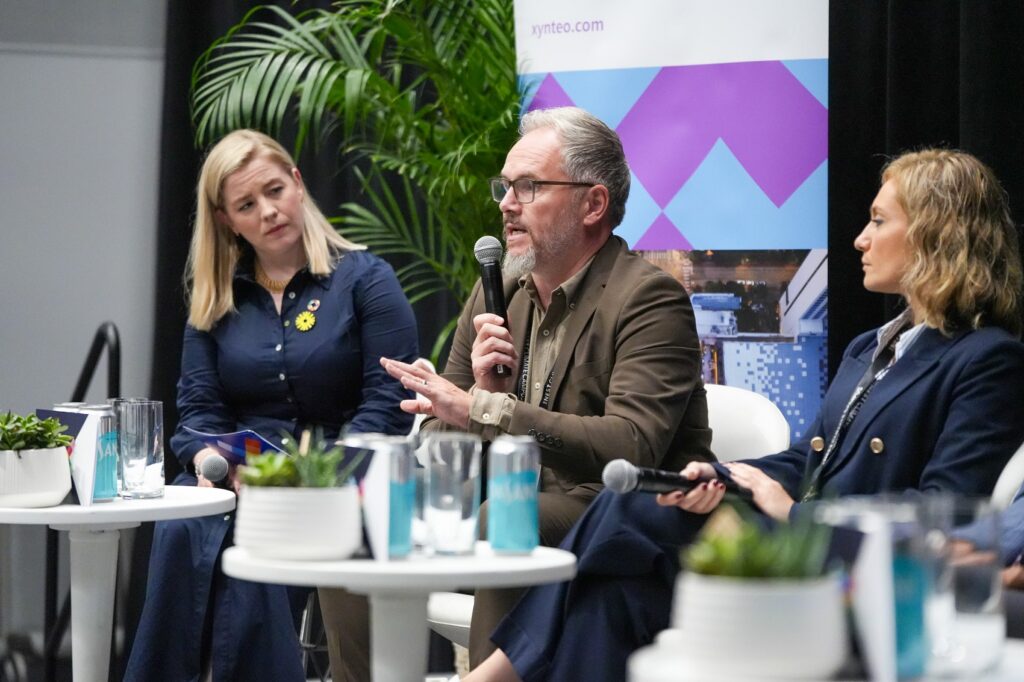
Our panel of experts: Lara Tyrrell (Moderator, Xynteo), Megan Allen (Senior Group Product Manager, Geotab), Tom Jensen (Founder and Chief Executive Officer, Freyr), Julia Palle (VP Sustainability, Formula E), Chris George (US Co-Lead, Octopus EV), Karin Svensson (Chief Sustainability Officer, Volvo)
Interconnected barriers are slowing progress
The complexity of the transition and its impact across economies and societies requires real innovation, and a systemic approach to getting things moving faster across the value chain. How and where charge points are deployed, which personal, public sector or corporate vehicles should be electrified and in what order, and how to manage the flow on effects to energy production and usage are all issues that required systemic approaches to collaboration.
While the nature of the collaborative challenge varies between developed and developing economies, and then from country to country, there are strong similarities in the areas needing resolution if we are to accelerate progress, including: ensuring there is enough green power on the grid to charge EVs so we can meet the economic and environmental case for the transition; the need to encourage of customer uptake and reduce reluctance from mass market buyers to adopt new technology; generating the availability of cost effective vehicles suitable for all budgets, including the develop a robust second-hand market and price parity with ICE vehicles (with or without subsidies); and building driver confidence in the availability of charging infrastructure.
It’s not just the vehicles, it’s utilisation
The question of whether we’re switching fast enough encouraged some healthy debate about alternative ways to take out the CO₂ generated by road vehicles – not by switching faster, but instead by rethinking how we use transport so we can utilise a smaller number of vehicles more effectively.
Many passenger cars are significantly underutilised, yet are hugely resource intensive to produce, take up space, and generally create significant end-of-life waste. Thinking laterally about decarbonising road transport and passenger miles is where shared mobility services of all types come in, enabling communities to evolve their relationship with transport.
An affordability and emotional choice
Sustainable transport, green miles, and decarbonising big swathes of the economy are really important to people who spend time at Climate Week NYC, but research shows that financial considerations outweigh all others. Switching to an EV must first make economic sense. Without the mass market moving to lower emission options, transport emissions will continue to rise. It is therefore critical that, whether by subsidies, tax relief or market forces putting downward pressure on costs, creating affordable vehicles for any budget is key.
Choosing and driving a car isn’t just a commercial decision – it’s an emotional one. Whether driving is simply a reliable way to get from A to B, a tool that allows you to do your job, or a place where you spend time and build relationships, our connection with our vehicles is an intensely personal ones. Research increasingly shows that once the switch is made, fears about the driving experience and charge anxiety often evaporate. The challenge is getting drivers into EVs in the first place, recognising that it’s an emotional and loaded decision, and ensuring that the transition’s scale-up is approached with that in mind.
Driving the transition forward
Across the entire discussion, one thing was becoming increasingly clear – that the real issue is that we need to put the humans back at the heart of this complicated market disruption and technological revolution. It’s not the technology that makes change happen, or the targets from government, or the investment from the manufacturers. It’s the people that need and want to use the vehicles that will help us get there faster.
The features of the car (or maybe even what it costs) will not be the primary factor for accelerating the shift to EVs, but the level of comfort people have behind the wheel. And while zooming out to think about the systemic connections within the system is necessary – and where the complexity for the industry lies – the transition will be success if we can bring people along with us.
You can catch up on all our Climate Week NYC 2024 insights below
Read moreStay up to date with our latest interviews by following us on social media (LinkedIn I Twitter), or Contact Us to find out how we can help your leaders and organisation create people and planet-positive impact.
